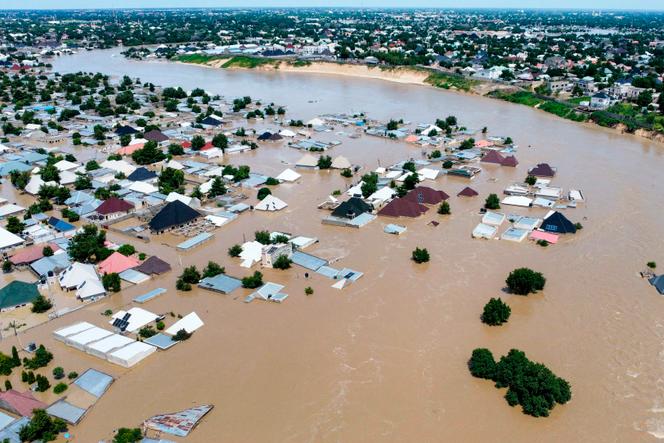


The collapse of the Alau Dam in northern Nigeria on Tuesday, September 10 has exacerbated the ongoing floods that have been devastating much of West and Central Africa for several weeks now. The dam, located 20 km south of Maiduguri, the capital of Borno State, was not able to withstand the force of the water, swollen by the unusually heavy rainfall at the end of the rainy season. Part of the city, which has a population of around one million, has been submerged, and several thousand houses have been destroyed.
Some 30 people died in the disaster and 400,000 were forced to flee their homes, according to a provisional count by the authorities, adding to the country's already high death toll. As of September 6, the UN had reported 200 deaths and over 225,000 displacements nationwide due to the floods since mid-July. Borno State is among the hardest-hit areas.
"Schools and health centers were destroyed. Economic activity came to a sudden halt. Maiduguri had never experienced an episode of this magnitude, and many people were taken by surprise," said Hussaini Abdu, the Country Director for Nigeria at the NGO Care International. This disaster has come at a time when humanitarian needs are already far from being met in a region marked by more than a decade of violence linked to the Boko Haram jihadist insurgency.
"50,000 people are still living in displaced persons camps in Maiduguri. And initial reports indicate that a similar number may be arriving as a result of the flooding. Insecurity continues to make the area inaccessible for aid deliveries," added Abdu.
In neighboring Chad, the situation is just as dire. Flooding has affected 1.5 million people, worsening an equally critical humanitarian situation. Since July, 340 people have died, 60,000 head of livestock have been drowned, 160,000 homes have been destroyed, and 25,000 hectares of crops have been submerged, jeopardizing future harvests.
"According to initial estimates, nearly $100 million [€91 million] will be needed to bring relief to these populations, many of whom have lost everything. As of right now, barely 10% of this sum has been mobilized," noted Gustave Gagny, head of the Action Against Hunger office in Chad. The country's humanitarian needs, which include the accommodation of 600,000 refugees from Darfur in the country's east and the consequences of the continuing conflict around Lake Chad, will cost more than €1 billion in 2024. To date, only a third of this amount has been raised.
You have 50.88% of this article left to read. The rest is for subscribers only.
